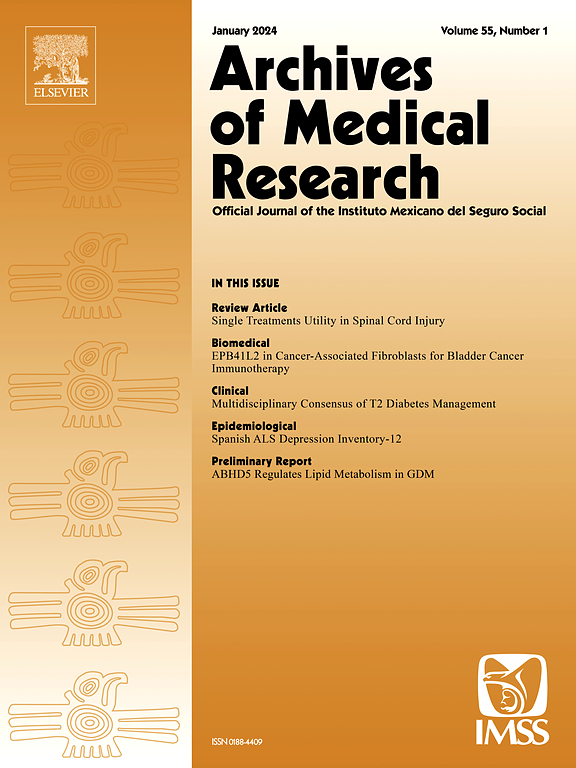COVID-19 policy response: Perspectives of key stakeholders in Mexico's health system and implications for resilience
IF 4.7
3区 医学
Q1 MEDICINE, RESEARCH & EXPERIMENTAL
引用次数: 0
Abstract
Purpose
This study aims to analyze the perspectives of key stakeholders within Mexico's health system regarding the policy response to COVID-19 in 2020 to inform future policy formulation.
Methods
This qualitative study is based on a secondary data analysis (SDA) derived from a broader primary research on governance in Mexico during the COVID-19 pandemic. The analysis adopted a grounded theory approach to examine 15 semi-structured interviews with prominent figures in the health system between June and November 2020. The interviews were audio-recorded and analyzed through the lens of the Health Policy Triangle which includes context, key actors, and the Mexican health policy process. Moreover, the analysis was enriched by incorporating the framework outlined in the World Health Organization's COVID-19 Strategic Preparedness and Response Plan (SPRP).
Results
The findings indicate that key stakeholders perceived a centralized approach to policymaking with a strong emphasis on cross-sector communication, expert panels, equity-focused measures, accessibility to healthcare services (promoting portability), and improvements in the health information system.
Conclusion
Key stakeholders recognized the response to COVID-19 was complex, involving multiple dimensions and levels of action. The importance of preparedness and response in building health system resilience is emphasized. Recommendations include explicitly integrating resilience into national and local policy agendas, addressing systemic structural deficiencies, promoting equity in the pandemic response, improving risk governance, strengthening coordination mechanisms, ensuring supply chain resilience, improving personnel training, and enhancing local diagnostic capacity to better prepare for future public health emergencies.
COVID-19 政策回应:墨西哥卫生系统主要利益攸关方的观点及其对复原力的影响
本研究旨在分析墨西哥卫生系统内主要利益相关者对 2020 年 COVID-19 政策应对措施的看法,为未来政策制定提供参考。 本定性研究基于一项二级数据分析 (SDA),该分析源于对 COVID-19 大流行期间墨西哥治理情况的更广泛的一级研究。分析采用了基础理论方法,对 2020 年 6 月至 11 月期间与卫生系统知名人士进行的 15 次半结构化访谈进行了研究。对访谈进行了录音,并通过 "卫生政策三角"(包括背景、关键参与者和墨西哥卫生政策过程)的视角进行分析。结果研究结果表明,主要利益相关者认为政策制定应采用集中式方法,并着重强调跨部门沟通、专家小组、以公平为重点的措施、医疗保健服务的可及性(促进便携性)以及医疗信息系统的改进。强调了准备和应对工作在建设卫生系统复原力方面的重要性。建议包括将复原力明确纳入国家和地方政策议程、解决系统性结构缺陷、促进大流行应对措施的公平性、改善风险治理、加强协调机制、确保供应链复原力、改善人员培训以及提高地方诊断能力,以便更好地应对未来的公共卫生突发事件。
本文章由计算机程序翻译,如有差异,请以英文原文为准。
求助全文
约1分钟内获得全文
求助全文
来源期刊

Archives of Medical Research
医学-医学:研究与实验
CiteScore
12.50
自引率
0.00%
发文量
84
审稿时长
28 days
期刊介绍:
Archives of Medical Research serves as a platform for publishing original peer-reviewed medical research, aiming to bridge gaps created by medical specialization. The journal covers three main categories - biomedical, clinical, and epidemiological contributions, along with review articles and preliminary communications. With an international scope, it presents the study of diseases from diverse perspectives, offering the medical community original investigations ranging from molecular biology to clinical epidemiology in a single publication.
 求助内容:
求助内容: 应助结果提醒方式:
应助结果提醒方式:


